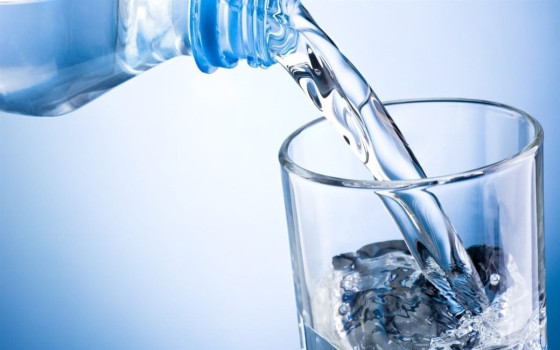
New study: Fluid deficiency raises stress hormones and increases the risk of heart disease, diabetes, and depression.

- Europe and Arabs
- Tuesday , 26 August 2025 7:49 AM GMT
Brussels - London: Europe and the Arabs
A British study has revealed how fluid deficiency raises stress hormones and threatens health. The study showed that individuals who consume less than 1.5 liters of fluid per day have a cortisol response to stress that is more than 50% higher than those who adhere to the recommended daily amount.
According to a report published by the European news network in Brussels, "Euronews," a new study conducted by scientists in Liverpool, UK, revealed that people who consume less than the recommended daily amount of fluids have a greater hormonal response to stress, which is linked to an increased risk of heart disease, diabetes, and depression.
The study, published in the Journal of Applied Physiology, showed that individuals who drink less than 1.5 liters of fluid per day had a cortisol response to stress that was more than 50% higher than those who adhere to the recommended daily amount. “Cortisol is the body’s main stress hormone, and its overreaction to stress is linked to an increased risk of heart disease, diabetes, and depression,” said study leader Professor Neil Walsh, Professor of Physiology at Liverpool John Moores University.
Neil and his team divided a group of healthy young men into two equal-sized groups, representing the lowest and highest 25% of daily fluid intake. The “low-fluid” group included people who typically drank less than 1.5 liters per day (water, hot drinks, etc.), while the “high-fluid” group included people who adhered to the recommended intake—2 liters for women and 2.5 liters for men. The two groups were matched on key factors that influence the body’s stress response, such as psychological traits and sleep quality.
The participants maintained their usual drinking habits for a week, during which their blood and urine hydration levels were monitored. They then underwent the Trier Social Stress Test, a popular test that simulates real-life stress through a mock job interview and a mental arithmetic task. "Both groups felt equally anxious and had elevated heart rates during the test. However, only the 'dehydrated' group showed a significant increase in salivary cortisol levels in response to the test," said study team member Dr. Daniel Kashy.
He added, "Although the dehydrated group didn't feel thirstier than the other group, their urine was dark and concentrated, clearly indicating poor hydration. Notably, poor hydration was associated with an increased cortisol response to stress, which is associated with poor long-term health."
Why is dehydration harmful?
The reason has to do with the body's water regulation system, which is closely linked to the stress response center in the brain. When the body becomes dehydrated, whether due to a lack of fluid or excessive loss, the hormone vasopressin is released. Vasopressin primarily acts on the kidneys to promote water reabsorption and maintain blood volume and electrolyte balance.
But this system comes at a cost: the constant release of vasopressin increases the stress on the kidneys, which have to work harder to concentrate urine and manage electrolyte balance. Vasopressin also affects the brain's stress center, which can increase cortisol secretion.
Hydration and Stress Management
The researchers suggest that the findings reinforce current recommendations for water intake—about 2 liters per day for women and 2.5 liters for men.
"Staying hydrated may help your body better handle stress," said Dr. Kashi. He explained that a practical way to check your hydration level is to monitor the color of your urine, with light yellow typically indicating good hydration.
He added, "If you know, for example, you have a stressful schedule, a deadline, or a speech to give, keeping a water bottle nearby may be a beneficial habit for your long-term health."












No Comments Found